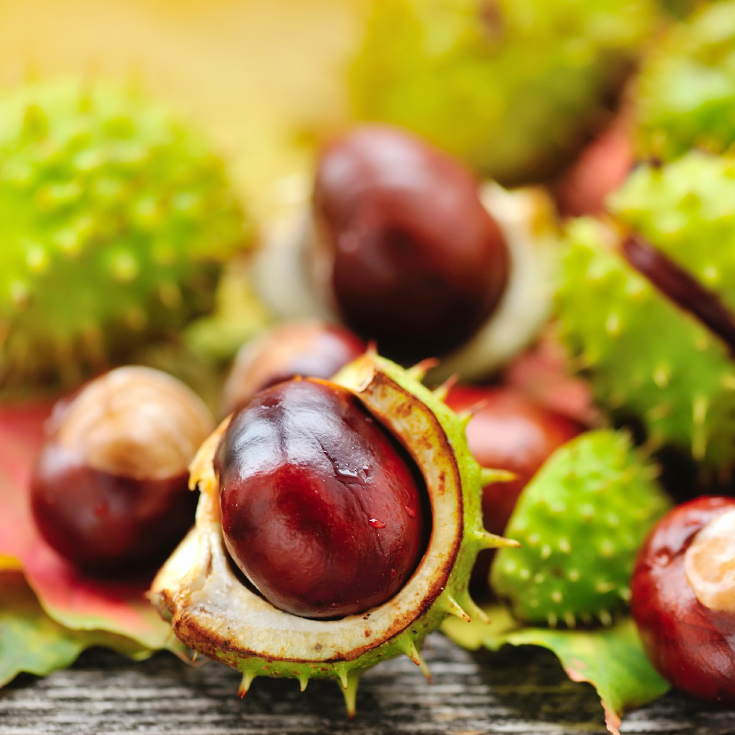Horse chestnut extract is derived from the seeds of the horse chestnut tree (Aesculus Hippocastanum). Horse chestnut seeds and leaves are used in herbal medicines for centuries in Traditional Chinese Medicine. Horse chestnut has numerous beneficial properties for the circulatory system. The substance is taken in capsule, tablet, or drop form. It has also been used in cancer research to treat blood clots and to help cure chronic venous insufficiency. Herbalists believe they reduce the risk of bruising and bleeding. The seeds and leaves have also been used in poultices to treat skin ulcers, leg swelling and rheumatoid arthritis. If you’re interested in finding out what horse chestnut extract can do for you, read on. You’ll discover its anti-inflammatory properties, how it strengthens small blood vessels, how it prevents nosebleeds, and more.
Anti-inflammatory
Aside from its many anti-inflammatory and antioxidant benefits, horse chestnut is also considered a safe herbal supplement. It contains a family of compounds called aescin. Saponins act as anti-inflammatory ingredients and are responsible for making soap. They also play a role in stabilizing collagen and capillaries. Proanthocyanidins inhibit the activity of hyaluronidase, a key enzyme in skin tissue that breaks down hyaluronic acid.
Reduces varicose veins
Varicose veins can cause pain in the leg and make it difficult to move the legs. As a result, many people are seeking natural remedies to help them reduce their appearance and relieve discomfort. The horse chestnut extract has been used for internal and external venous circulation and can help reduce the symptoms of chronic venous insufficiency. The extract contains a compound called Aescin, which helps the veins contract with greater force and less water passes through them.
You’ve probably heard of the homeopathic supplement horse chestnut. But how does it work? The active ingredient, aescin, helps strengthen blood vessels and reduce swelling in veins. Among its benefits are reducing swelling, improving circulation, and strengthening the walls of small blood vessels. A recent study has suggested that horse chestnut extract The active ingredient in horse chestnut, escin, works by increasing blood flow in the veins and reducing swelling. While its mechanism of action is not yet understood, it may help to improve the veins’ elastic strength or seal leaking capillaries. Regardless of its exact mechanism, horse chestnut extract can help reduce the symptoms of CVI in many cases.
Treat hemorrhoids
The seeds from the horse chestnut are traditionally used to treat soft tissue and joint pain. They also have been used to treat fever, bladder and gut problems. Recent studies indicate that horse chestnut seed extract may also help with the symptoms of hemorrhoids. But further research is needed to confirm these claims. The horse chestnut Ascin, a phenol with anti-inflammatory properties, has anti-inflammatory properties, promoting the healing of wounds. However, more human research is necessary to confirm the positive effects of horse chestnut. However, the extract has not been proven to cure this type of disease, so you should consult a physician before trying it for yourself.
Improves sperm quality
There are several benefits of horse chestnut supplements. For one, horse chestnut contains prebiotics, a type of fiber that is fermented by the microflora in the colon. Another benefit is the presence of escin, which is not toxic. Escin helps boost male fertility by improving sperm quality and quantity. The plant has been used to improve male fertility for over a century
Researchers are investigating whether horse chestnut extract improves sperm quality in men with varicocele-associated infertility. The compound escin, found in horse chestnut seeds, has therapeutic potential in this area. In a recent study, men treated with escin showed improvements in sperm density and mobility. Additionally, it did not affect blood counts or vital signs. Lastly, horse chestnut is thought to have therapeutic potential for men with chronic venous insufficiency.
Is Horse Chestnut Extract Safe?
The extract from horse chestnut has anti-inflammatory and antioxidant properties. Although it is generally considered safe to take, some side effects may occur and it could interact with some medications. We not recommend horse chestnut extract for everyone. Those suffering from frequent nosebleeds should consult with their physician before using horse chestnut. Some studies show that horse chestnut extract may trigger cell death in certain types of cancer. In addition, you should avoid ingesting horse chestnut if you have any underlying health conditions. Before you start taking it, make sure to know your limitations. In fact, some studies have found that it could have negative side effects. For this reason, you’ll want to consult your doctor before using it. However, horse chestnut is not recommended for anyone with venous insufficiency. If you have questions about whether horse chestnut is safe for you, see a doctor for a consultation.
- Dandelion Extract: What It Is, Benefits, Uses and Side Effect - April 23, 2024
- Is Berberine Extract Help For Weight Loss? - April 11, 2024
- Why Is Pysllium Husk Powder A Popular Meal Replacement Ingredient? - April 3, 2024



